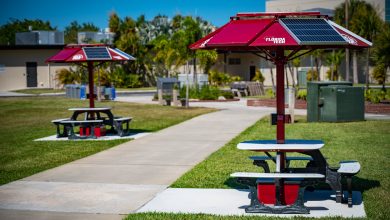From Florida Librarian to Shark Conservationist in Alaska, Alumna Forges a Career Fusion
Richardson has found the uniquely perfect intersection of her marine biology degree and her time as a Florida Tech librarian. She now puts her anomalous skill set to use with the Alaska SeaLife Center in science outreach for shark research. Here’s how it all happened.
By Philina Richardson, marine biology ’09
When I graduated from Florida Tech nine years ago, I never imagined my career would follow this path—from student, to librarian, and finally to Science Outreach Fellow at the Alaska SeaLife Center in Seward, Alaska. As it turns out, it was my time at Evans Library that set me on this trajectory. As a librarian, I helped students find, access and evaluate information. Now I’m putting my information literacy skills to use on the other side of that process, working with biologists at the SeaLife Center to create an outreach site for the Pacific sleeper shark research project. While working on the project, I’ve often found myself thinking of the things I’d ask my students to look for when evaluating a resource—how do you determine credibility? Accuracy? By focusing on those areas, I hope to make the research process easier for our readers.
Performing outreach isn’t just about dumping information on your audience; it’s about creating an opening for dialogue between researchers and stakeholders. One of my favorite parts of working at the SeaLife Center is the opportunity to work with these groups. We work with local fishermen in our capture efforts, which allows us to learn from their expertise while simultaneously getting them involved in the research process. By talking and working with those “on the ground,” we’re increasing the reach and effectiveness of our research. I once read an article that said something to the effect of “perform outreach or your research will die,” and while I don’t think things are quite that dire, I do believe that using outreach to cultivate and develop interest and appreciation can only be beneficial in the long run.
The Pacific sleeper shark is a poorly understood and understudied species that is frequently caught by both commercial and private fishing vessels in the Gulf of Alaska. In fact, much of what we know about Pacific sleeper sharks originates from animals caught as bycatch in commercial fisheries. Learning more about these sharks and their biology can help us reduce both discard mortality and other human impacts on their populations.
The path from student, to librarian, to arctic shark research has certainly been interesting, and I wouldn’t have had it any other way!





